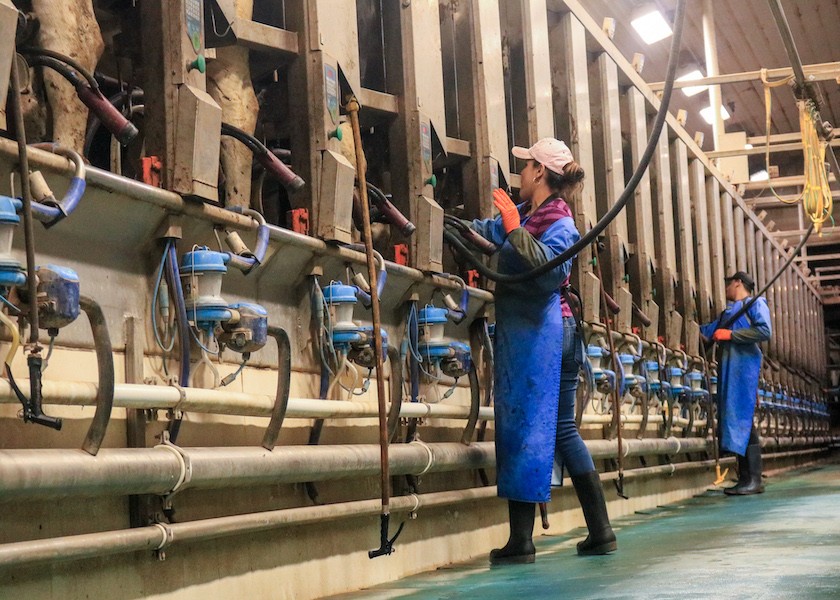
Dwyane Faber, a dairy farmer from Washington, was disappointed by the ruling.
“While many farmers were aware of the court case in the WA State Supreme Court, the 5-4 ruling was incredibly disappointing, especially given the fact that farmers were given 30 days to comply,” he says.
According to the Spokesman-Review, in a 2016 class-action suit brought by Jose Martinez-Cuevas and Patricia Aguilar, the dairy workers alleged that they were not compensated for time worked in excess of 40 hours while working in dangerous conditions at the Deruyter Brothers Dairy, in Outlook, Washington, which is between Yakima and the Tri-Cities.
Court records show the dairy milks about 3,000 cows per shift, three shifts a day, seven days a week. The Spokesman says the employees alleged that the dairy failed to pay minimum wage, did not provide adequate rest and meal breaks and failed to compensate workers for duties before and after their shifts and overtime for work exceeding 40 hours.
California was the first state to implement overtime rules for farming operations (on a phased-in approach) and now Washington state is the second, according to Paul Neiffer principal of Washington-based accounting firm CliftonLarsonAllen. The Court ruled that overtime was required since “farming” is a dangerous occupation and workers need to be rewarded accordingly.
“Washington state already has some of the highest minimum wage rates in the country (currently $13.50 rising to $13.69 in January (indexed to inflation),” Neiffer says. “This means that farmers will need to pay $20.54 per overtime hour starting in 2021.”
Faber adds the threat of 3 years of back pay for overtime hours worked, which is yet to be litigated, also looms over farmers heads.
“While these rulings are viewed as friendly to workers, the real impact is that dairies cannot afford to pay overtime and will reduce hours for employees or make investments into technology to eliminate positions,” he says.























